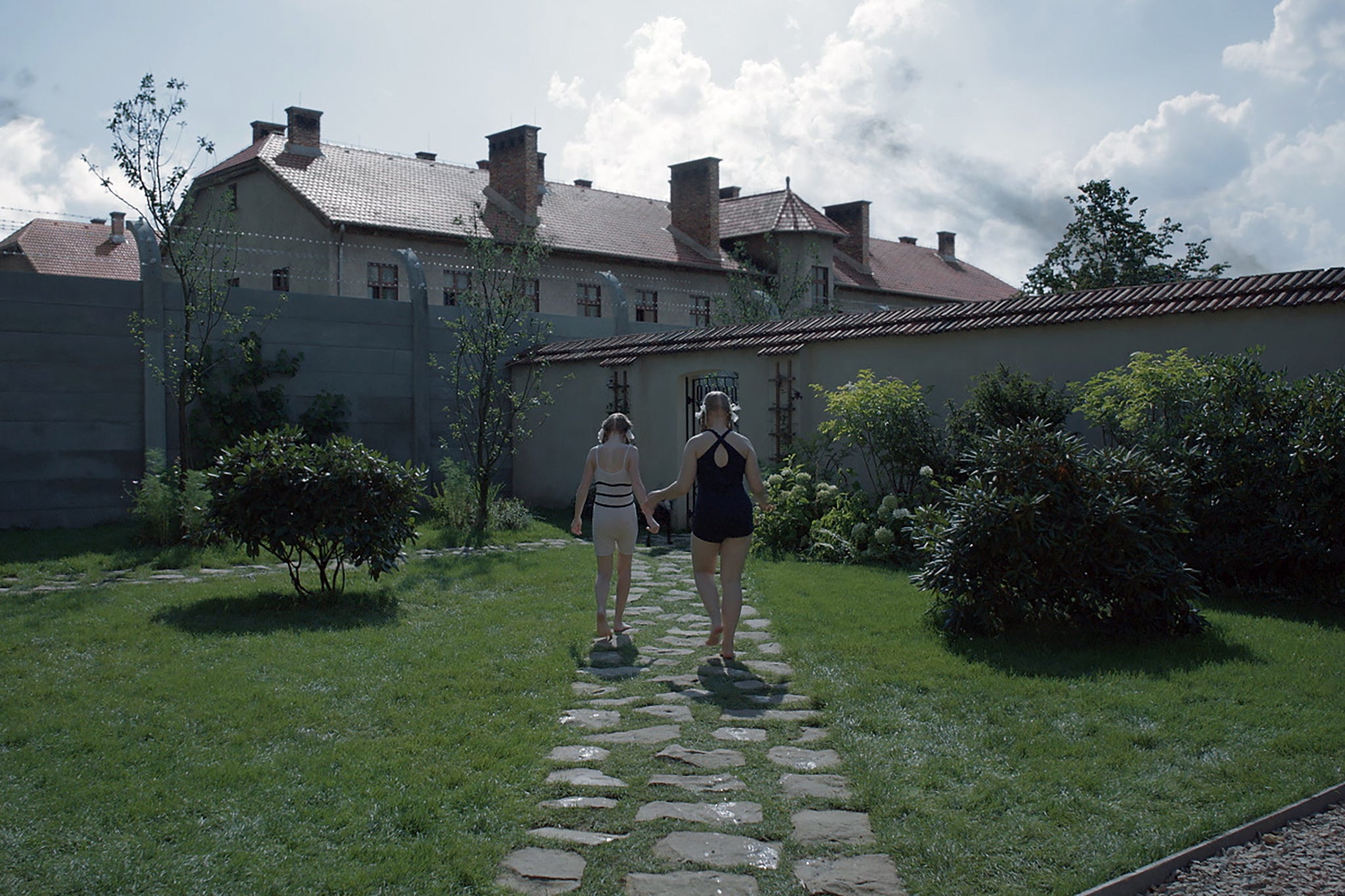The Zone of Interest review: A hellish, daring spin on more traditional Holocaust movies
Jonathan Glazer’s film – which has been nominated for five Oscars, including Best Picture – is set on the literal fringes of Auschwitz, with seemingly idyllic images of family life bordering the horror on the other side of the fence
Your support helps us to tell the story
From reproductive rights to climate change to Big Tech, The Independent is on the ground when the story is developing. Whether it's investigating the financials of Elon Musk's pro-Trump PAC or producing our latest documentary, 'The A Word', which shines a light on the American women fighting for reproductive rights, we know how important it is to parse out the facts from the messaging.
At such a critical moment in US history, we need reporters on the ground. Your donation allows us to keep sending journalists to speak to both sides of the story.
The Independent is trusted by Americans across the entire political spectrum. And unlike many other quality news outlets, we choose not to lock Americans out of our reporting and analysis with paywalls. We believe quality journalism should be available to everyone, paid for by those who can afford it.
Your support makes all the difference.The Zone of Interest – which has been nominated for five Oscars, including Best Picture – issues a warning from just outside the walls of Auschwitz, spreading its soul-sickness across each frame. It studies the domestic life of Rudolf Hoss (Christian Friedel), the real-life commandant at the concentration camp in Nazi-occupied Poland where an estimated 1.1 million people – 960,000 of them Jewish – were murdered. He lived at that time, with his family, in a corner of Auschwitz I, where a gas chamber and a crematorium were built.
Laundry is hung out to dry in the sun. A boy shares his first kiss around the back of the house. Hoss walks down to the nearby river to fish. At first glance, these images may seem innocent – idyllic, even. But we must bear witness to their details and testify to their significance: the rail-thin bodies in muddied uniforms, silently delivering the week’s groceries; the barbed wire that trims every exterior wall; the smoke issued from a train that skims across the top of the screen. Hoss’s wife, Hedwig (Anatomy of a Fall’s Sandra Huller), leads her visiting mother around the property’s vegetable patch. A faint, anguished scream interrupts the flow of conversation. Hedwig pauses for a moment and then continues.
Taking loose inspiration from a 2014 novel by the late Martin Amis, director Jonathan Glazer demonstrates Hannah Arendt’s “banality of evil” theory at work. First conceived during the 1960 trial of Adolf Eichmann, an SS officer and one of the primary architects of the Holocaust, the term views the enactment of such unspeakable crimes through a lens of “sheer thoughtlessness” – that men like Eichmann and Hoss hid their evil beneath ordinary turns of phrase, mindless action, and quotidian bureaucracy.
And it is unavoidable, now, that Arendt’s words reflect back to us. “This is not a film about the past,” the director has said. “It’s trying to be about now, and about us and our similarity to the perpetrators, not our similarity to the victims." When Hoss is ordered to relocate to Berlin, his wife becomes inconsolable. She refuses to leave the house she’s transformed into her own fortress of delusion. We see uniformed officers, these machines of death, standing at the gates. But Hoss will ensure his boots are washed of blood before he steps across the threshold.
In the kitchen, the wives howl, gossiping about the clothes they stole off Jewish victims. But they will not utter a word about the fires they see burn at night. Huller’s intelligently pitched performance allows Hedwig’s mock nonchalance to crumble for a moment when she tells the Jewish woman who works in her home that she could “have my husband spread your ashes” across the countryside.

It’s a tidy home, rendered uncanny and hostile by Łukasz Żal’s cinematography. In Glazer’s last film, 2013’s Under the Skin, the director relied on hidden cameras to track an extraterrestrial Scarlett Johansson’s journey across Glasgow. He does the same here, with 10 fixed cameras dotted around the house, controlled via remote. An extended title sequence provides a kind of sensory deprivation. A darkened screen gives way to the hellish sirens of Mica Levi’s score, before we awaken, powerless to disrupt Hoss’s hermetic reality. At the very end, Glazer chooses to flash forward, his intentions made concrete – the evils of today will leave their own scars on history.
Dir: Jonathan Glazer. Starring: Christian Friedel, Sandra Huller, Ralph Herforth, Daniel Holzberg, Sascha Maaz, Freya Kreutzkam, Imogen Kogge, Johann Karthaus, Lilli Falk. 12A, 105 minutes.
‘The Zone of Interest’ is in cinemas from 2 February
This article was amended on 2 February 2024. It originally referred to Auschwitz as a Polish concentration camp, but the camp was set up and run by Nazi Germany on occupied land.

Join our commenting forum
Join thought-provoking conversations, follow other Independent readers and see their replies
Comments